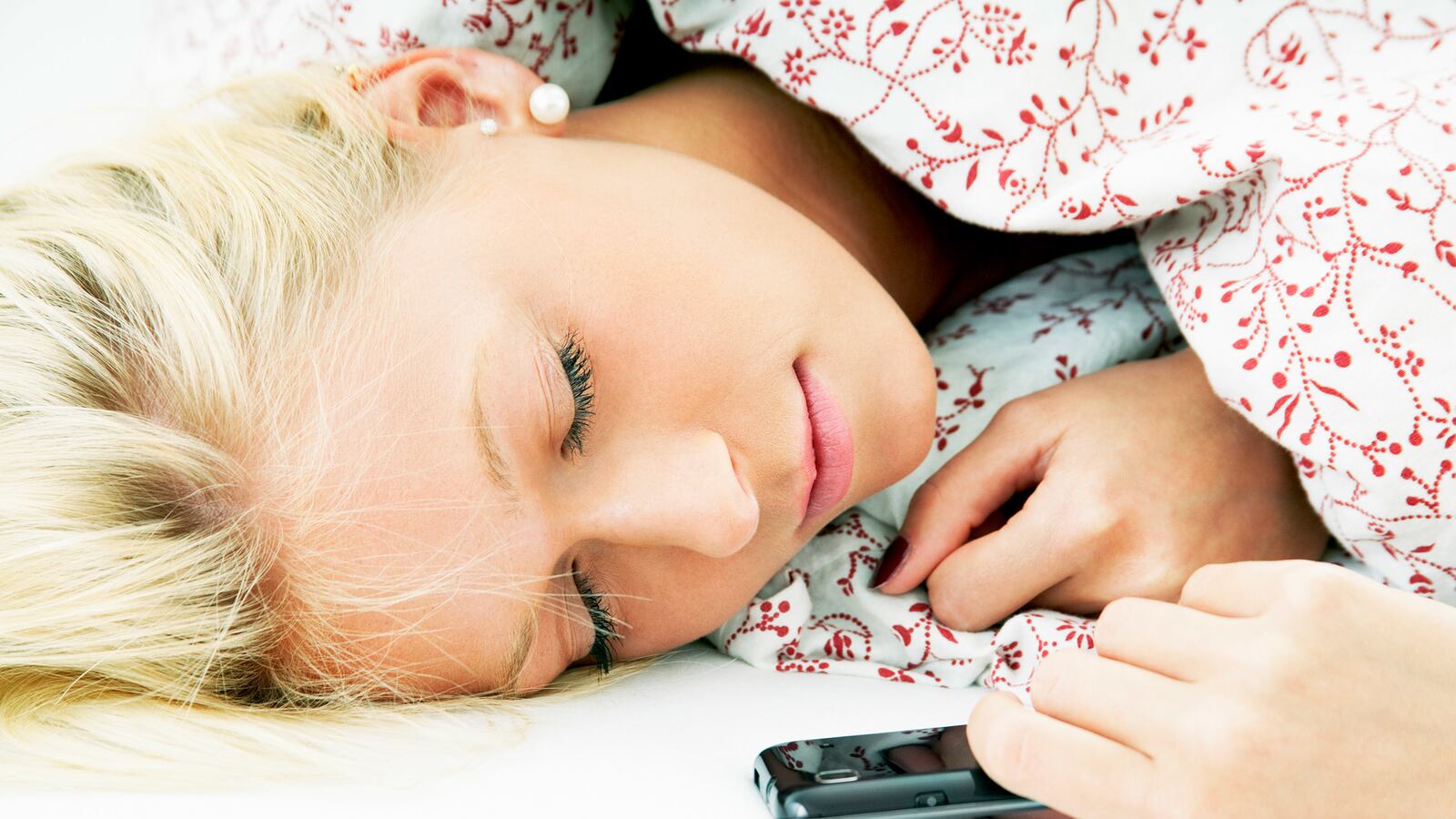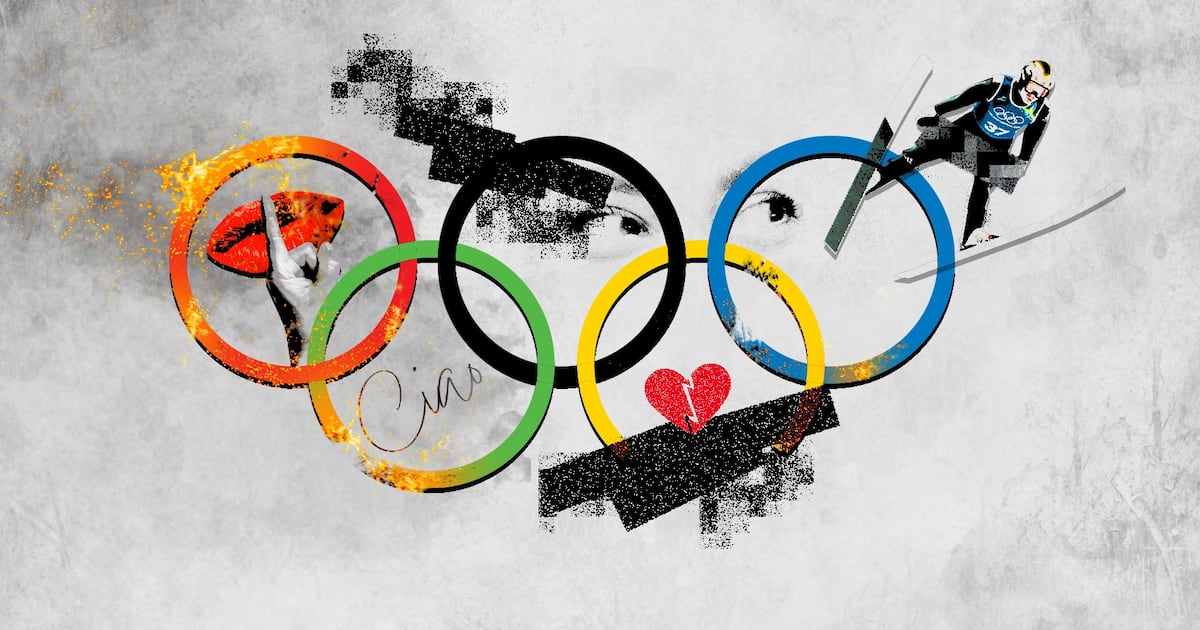When I saw the woman to my right clearly in a state of anxiety, I took an almost selfish solace in her discomfort. I knew I wasn’t the only passenger on board afraid of flying. “You’re not alone,” I told her with a half-smile. “Flying makes me very anxious, too.” The woman’s response was not one that I was expecting. “Oh, no, dear. It’s not flying that I’m afraid of. I just hate being out of touch with my family and friends down below.”

Like clockwork, the woman two seats over chimed in. “I know, right? Thank god for the free in-flight Wi-Fi.” I turned my head toward the window and stared blankly at the world below, just before 20 minutes of severe turbulence nearly stole my lunch. Ironically, the weather front deprived the passengers on Flight 630 of further Internet access. “We apologize for the inconvenience,” the flight attendant said in a rehearsed manner. Everyone on board knew that a Malaysian Airlines flight had been missing, and all were presumed dead in the Indian Ocean. The ladies beside me were clutching their iPhones in what appeared to be death grips.
Contemporary society has gifted us with a phobia potentially as strong as acrophobia or the fear of flying: smartphone anxiety. We have come to depend on our technology for emotional sustenance.
“Some of the people I interviewed for my book used phrases like ‘my smartphone is like my blankie, I feel anxious without it,’” Catherine Steiner-Adair Ed.D and author of The Big Disconnect: Protecting Childhood and Family Relationships in the Digital Age tells The Daily Beast. “These are signs of a psychological dependency,” she says. And if you, too, “can’t leave home without your phone when you don’t need it, feel anxious, experience withdrawal agitation, can’t go to the bathroom without bringing your phone,” you very well might be psychologically dependent on you phone as well, she explains.
What’s funny is that one of the very few things I enjoy about flying is the freedom: the physical and psychological distance between you and the rest of the world; the inability to refresh your email 10 times per minute or see if you have any new Facebook notifications; the simple fact that you can’t place the phone calls that punctuate our days; and perhaps, most importantly, the ability to be in the present moment.
In many ways, as a member of my technologically advanced, media-obsessed generation, and as a citizen of the world, I understood what the woman to my right (whose named turned out to be Meredith) meant. It’s a scary thing not being able to be in constant contact with loved ones. It’s natural to worry and wonder whether or not they are OK. Not being in control is something many people have a hard time coming to terms with. Moreover, smartphones can be spectacularly helpful and entertaining, and they most certainly have advanced our lives in significant ways. Without them, we very well might be lost, and I don’t just mean without the Google Maps app.
The ubiquitous smartphone has become our most indispensable accessory. The ability to communicate with friends and family across the world immediately and for free is irrefutably incredible. Even more impressive is the extent to which smartphones have become instruments of emotion. They facilitate a broad spectrum of feelings that have amplified our emotional lives just as surely as they’ve brought the world to each of our fingertips and doorsteps.
Every time you step onto an airplane, into a restaurant, into a classroom, or into a social gathering, you have a choice. You can turn your phone completely off, which might make your life easier. (If you have protective parents like mine, that might evoke the same kind of fear in people as the fear Meredith experiences when she flies.) You can turn your phone to silent or set it to “Do Not Disturb”—yes, that means the vibrator setting is turned off, too—so that you will be less distracted. You can leave your phone on and pay little to no attention to it. You can.
But you probably won’t.
At our best, we’re in control of most of our circumstances. It’s almost comical to think how much the little smartphone has changed all that. We are much more likely to leave our phones on the table as we eat—or, if we’re feeling super generous, we hide it between our folded legs or underneath our napkins. We get distracted when our phones light up, so much so that we actually lose all sense of what’s going on around us and focus only on what’s going on inside our little 2½-by-5-inch boxes, which—if only even for a brief moment—we consider to be unquestionably more important than anything and everything else. We spend our nights perfectly filtering Instagrams so we can “remember” the moment and yet, ironically, we are usually doing the exact opposite. Our phones have become the masters of our time.
Kathleen McCartney, president of Smith College, reflects on this idea. “More and more, people are using smartphones even while participating in face-to-face social events. For example, you are at a party and texting people who aren’t there to connect with them, you are at a concert and posting photos on Facebook,” she says. “I think we feel a connection to others when they ‘like’ what we text or post.”
She continues, “I think smartphones can be somewhat addictive. I have one guess about why: We are rewarded randomly by them. We get great news via email, Facebook, Twitter, and so on. This keeps us coming back for more.”
Everybody wants to speculate on the portentous meaning of such technological change, and it’s hard to deny its inevitability. Common sense suggests now is a time to hold onto what’s best about the old, to protect those things about life that might be compromised as technologies and opportunities evolve. In the face of this technology juggernaut, we have to recognize the enormousness of anything that can so easily control the way we feel.
As the plane’s wheels began to touch the tarmac in New York City, Meredith let out a huge sigh of relief and proceeded to turn on her cellphone. When I looked around, I noticed that practically everyone on board did the same. The sounds of text message and voicemail notifications were a clear indictor that we were back to reality.
“Hi, honey, it’s Meredith.” Silence. “Oh, nothing,” she chuckled. “Just wanted to say hello.”






